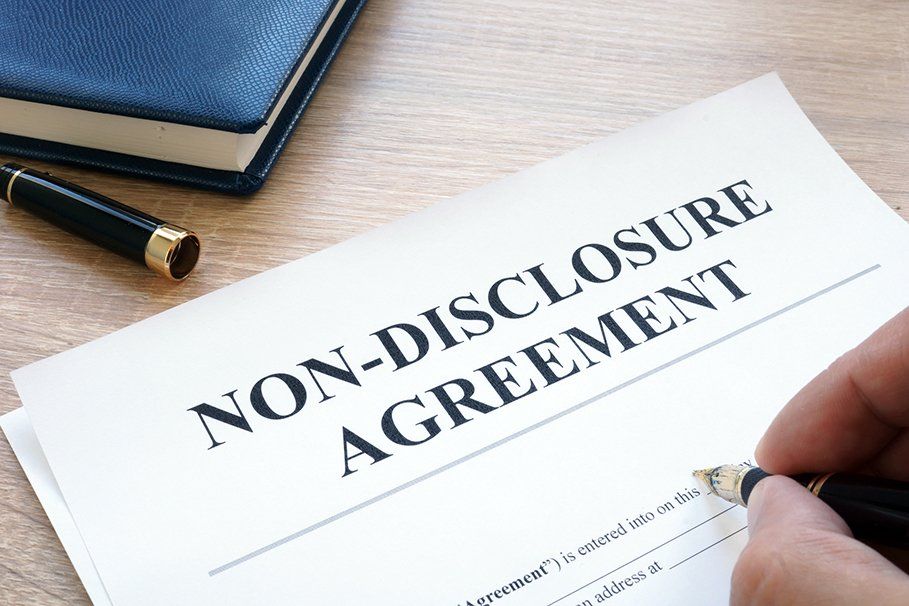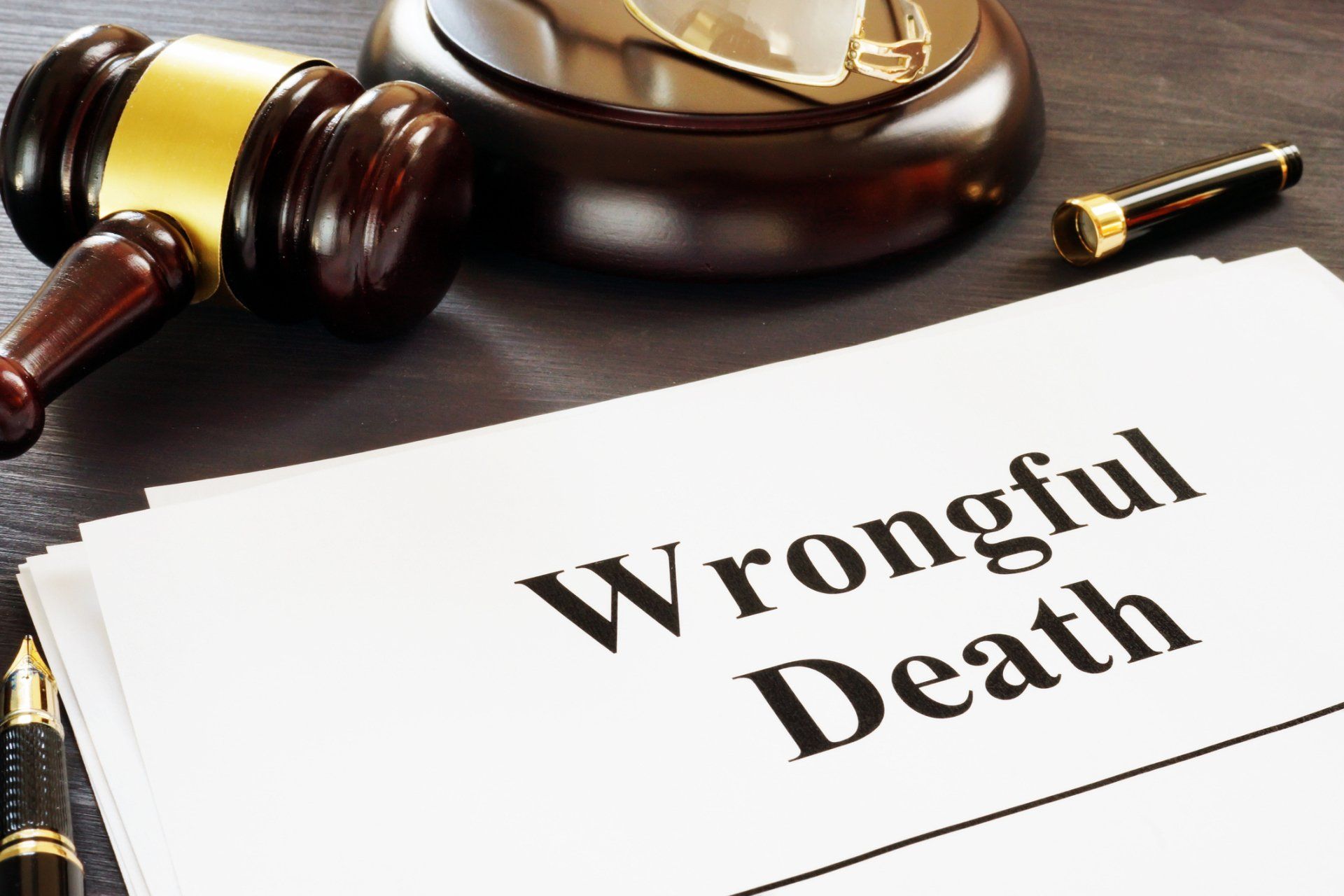4 Things to Consider Prior to Signing a Nondisclosure Agreement
- By Admin
- •
- 31 May, 2019
- •

If you are involved in a personal injury lawsuit, as a part of your settlement you may be asked to sign a nondisclosure agreement. This is a contract between the parties involved where all parties will agree that the terms and conditions of the lawsuit will remain private.
While many people see no harm in keeping quiet about what has taken place and/or what the final outcome is, there are some things that must first be considered. Here are a few of them.
While many people see no harm in keeping quiet about what has taken place and/or what the final outcome is, there are some things that must first be considered. Here are a few of them.
Who You Can Disclose To?
While keeping things private often seems to be a fairly simple thing to do, some people may need to know a few details of your settlement.
For example, if you plan to use an accountant or a financial adviser to help you invest and manage the proceeds of your settlement, they may need some information. This could include the amount of money you will receive or whether it will be a lump sum or annuity payments over a specified period of time.
Depending what you plan to do with your settlement, you may need additional legal advice. You may need to disclose some of the terms in order to set up a trust or to place various provisions within your will.
Your nondisclosure agreement may permit you to disclose to certain people such as your attorney, accountant, and spouse, but you need to ensure that this clause is included in anything you sign.
For example, if you plan to use an accountant or a financial adviser to help you invest and manage the proceeds of your settlement, they may need some information. This could include the amount of money you will receive or whether it will be a lump sum or annuity payments over a specified period of time.
Depending what you plan to do with your settlement, you may need additional legal advice. You may need to disclose some of the terms in order to set up a trust or to place various provisions within your will.
Your nondisclosure agreement may permit you to disclose to certain people such as your attorney, accountant, and spouse, but you need to ensure that this clause is included in anything you sign.
What Is Covered by the Agreement?
Not all nondisclosure agreements are created equal. While some may cover all of the information contained within your lawsuit, others may just be specific to the terms, conditions, and/or settlement amounts.
It is easy to understand why the plaintiff would not want an admission of guilt or the terms or amount of a settlement agreement made public. To do so may not only damage their reputation, but may also impact other pending claims against them; other attorneys cannot place a reasonable value on a potential case if they don’t have other known cases to compare it to.
In addition, you may not want your medical conditions, medications, disabilities, or settlement amounts publicly disclosed.
Fortunately, each nondisclosure agreement can be tailored to cover the specifics of your case and your requirements along with those of the other party to the suit.
It is easy to understand why the plaintiff would not want an admission of guilt or the terms or amount of a settlement agreement made public. To do so may not only damage their reputation, but may also impact other pending claims against them; other attorneys cannot place a reasonable value on a potential case if they don’t have other known cases to compare it to.
In addition, you may not want your medical conditions, medications, disabilities, or settlement amounts publicly disclosed.
Fortunately, each nondisclosure agreement can be tailored to cover the specifics of your case and your requirements along with those of the other party to the suit.
How Long Will the Agreement Last?
Are you expected to keep the information confidential for a year, ten years, or a lifetime? While each nondisclosure agreement can be individualized, you need to know the exact time period that the agreement will be in effect. Once this time period has expired, you or others involved in the case are free to disclose the covered information.
This time period along with other components of the agreement should be open for negotiation.
This time period along with other components of the agreement should be open for negotiation.
What Are the Penalties for Breaking the Agreement?
The agreement should contain very clear language on what the penalties are for a violation. These penalties may range from being sued in court to liquidating the settlement and returning anything you received.
Nondisclosure agreements are very serious documents. You need to fully understand exactly what you are signing and actually agreeing to. You should not sign a nondisclosure agreement without it first being reviewed by legal counsel.
Fortunately, at Richard D. Hoffman Law Offices, we understand what nondisclosure agreements should and should not include and whether they are in the best interest of your case. Call us today so that we can review your case, help you negotiate your settlement, and review your nondisclosure agreement if one is required. We can help ensure you receive the compensation you deserve.
Nondisclosure agreements are very serious documents. You need to fully understand exactly what you are signing and actually agreeing to. You should not sign a nondisclosure agreement without it first being reviewed by legal counsel.
Fortunately, at Richard D. Hoffman Law Offices, we understand what nondisclosure agreements should and should not include and whether they are in the best interest of your case. Call us today so that we can review your case, help you negotiate your settlement, and review your nondisclosure agreement if one is required. We can help ensure you receive the compensation you deserve.

If you live in the city and the times of day you drive coincide with the times of day many others are also on the road, then you're going to be on the road during rush hour.
Automobile accident fatalities are significantly higher during evening rush hour traffic. If you have obligations that cause you to be on the road during rush hour traffic, then you should take some of the advice offered below to help decrease your chance of being involved in an accident.

If you think serious personal injuries only happen on the road or in dangerous places like amusement parks, think again. Many personal injuries occur at the places people often visit — for instance, at your local grocery store.
If you haven't considered the hidden dangers that can lurk in a grocery store, keep reading. We overview some of the most common personal injuries that occur in grocery stores and explain when and why you can hold the store responsible for your accident.

Mesothelioma is primarily caused by exposure to asbestos. This dangerous substance has been connected with an illness which is often fatal. Each year, many people go to court to fight for compensation for this illness.
Have you been diagnosed with mesothelioma? Read on to learn more about the condition and your legal options.
Have you been diagnosed with mesothelioma? Read on to learn more about the condition and your legal options.






